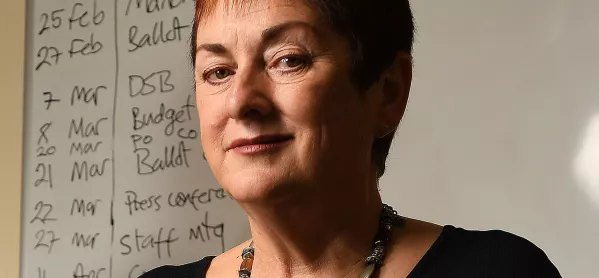
- Home
- Has the entire academisation programme been worth it?
Has the entire academisation programme been worth it?

‘Freedom works; and the word is spreading’
So said Michael Gove, then education secretary, in 2011 in a speech praising his academies and free schools’ policy.
What are we, seven years later, with evidence from the real-world of schools intruding on Gove’s heady ideology, to make of his claim that mass academisation would raise school standards?
A four-year study by academics from the Institute of Education Hierarchy, Markets and Networks concludes that, far from achieving freedom for schools, Gove’s education reforms have resulted in “chaotic centralisation”. School leaders, say the researchers, have been given “a semblance of autonomy and self-governance”, which is more than matched, in practice, by externally driven targets.
And if schools have been set free from the (very weak) shackles of local authority control, the researchers find that “any increase in operational autonomy for schools is more than balanced out by changes to the accountability framework, which have allowed to state to continue to steer the system from a distance and to increasingly intervene and coerce when and where it deems necessary”.
Would broken promises on illusory school freedoms matter if mass academisation were a magic bullet to raise school standards as Gove promised?
That’s a question that is open for debate. But, here’s the thing: academisation is not a magic bullet to raise school standards.
Research by the cerebral Education Policy Institute School Performance in Academy Chains and Local Authorities comes to one central, unescapable, conclusion, which is this: “Overall, we find little difference in the performance of schools in academy chains and local authorities.”
Which leads back to my previous question. Has it all been worth it? That is a question raised by the Public Accounts Committee (PAC) in its recent report Converting schools to academies.
I am getting used to reading PAC reports that are, how can I put this, trenchantly expressed. But this one takes the biscuit when it states that, in the past, the Department for Education recognises that it has focused on “converting large numbers of schools quickly”. To which PAC responds, acerbically: “We consider that this has been at the expense of rigorous due diligence checks and risk assessment.”
Even more alarming is the Department for Education’s admission that, in its own view, 15 per cent of multi-academy trusts (MATs) are at “high risk” and 55 per cent are at “moderate risk” of failing.
That’s 70 per cent of MATs, by the DfE’s own admission, at risk of failure. With all that brings for schools languishing in a poor-quality MAT without adequate support and leadership, or orphaned schools, abandoned as MATs walk away from their responsibilities and leave schools to go it alone, picking up the pieces from years of mismanagement of staff and resources.
And this is before you consider all the anguish and worry that a MAT failure brings for parents who must wait months before their child’s school is re-brokered as sponsors negotiate deals with the DfE to take them over.
PAC has charged the Department for Education to review academy trust failures (there are enough of them - the Wakefield City Academy Trust, Bright Tribe, Durand Academy Trust and so on), and to identify the main reasons for these failures, to ensure that the risks in academy conversion are well managed.
This seems to me an entirely reasonable requirement for PAC to make given the vast amount of public money - £745m - that has been spent on academy conversion.
It is always important to follow the money, particularly when it is public money to be spent on public services. So I have one more query.
In a recent parliamentary answer to a question by Lucy Powell, a former shadow education secretary, the government revealed that in 2016 to 2016 over £121m was spent by academy sponsors in related-party transactions. This means, in ordinary language, £121m spent by academy trustees on services which they, or people they know, provided to the schools they govern.
This is an eye-watering amount of money. The government argues that all related-party transactions are declared in MATs’ audited accounts. But audited accounts do not say whether the services provided to the MAT are good value for money, or even whether they are actually needed at all.
Belatedly, the government has recognised the scale of this issue, and from September, MATs have to clear related-party transactions over £20,000 with the government.
This is a much-needed step forward.
But I want to know this: how much money has been squandered in related-party transactions that have not been good value for money? How many schools have been horrendously overcharged for services that were either not needed, or inadequately provided?
And what effect has this had on the standards of education provided in the academies they are charged to govern?
Mary Bousted is joint general secretary of the NEU teaching union. She tweets @MaryBoustedNEU
Register with Tes and you can read five free articles every month, plus you'll have access to our range of award-winning newsletters.
Keep reading for just £4.90 per month
You've reached your limit of free articles this month. Subscribe for £4.90 per month for three months and get:
- Unlimited access to all Tes magazine content
- Exclusive subscriber-only stories
- Award-winning email newsletters
You've reached your limit of free articles this month. Subscribe for £4.90 per month for three months and get:
- Unlimited access to all Tes magazine content
- Exclusive subscriber-only stories
- Award-winning email newsletters



